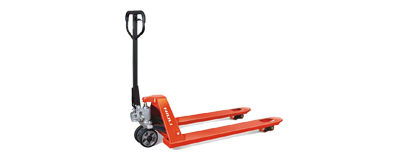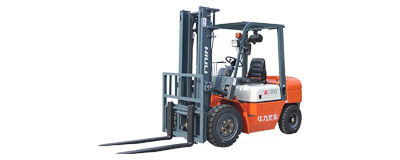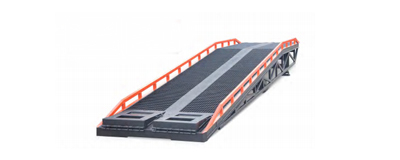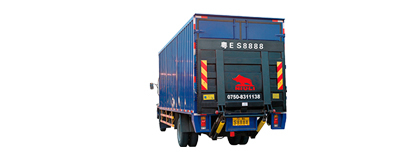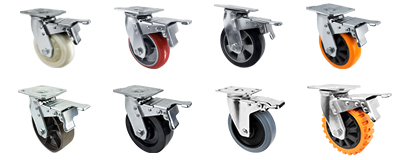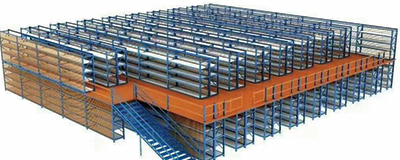If you manage inventory, move goods in a warehouse, or oversee logistics in retail or manufacturing, you’ve likely encountered the decision between pallet trucks and forklifts. The right equipment can save time, prevent worker strain, and improve your bottom line. But how do you choose between these two workhorses? This comprehensive comparison explores pallet trucks and forklifts, their advantages and disadvantages, their use cases, and guidance on which machine will best suit your business.
What Are Pallet Trucks and Forklifts
Before looking at features or benefits, it’s important to clarify what pallet trucks and forklifts actually do in daily operations.
Understanding Pallet Trucks
Pallet trucks are designed for moving palletized goods short distances. They aren’t typically powered by engines; instead, the manual variety relies on a simple hydraulic pump that lifts loads just a few inches off the ground. Electric pallet trucks, also known as powered pallet jacks, use a battery-powered motor for extra ease and speed. Both types are valued for their simple operation, low footprint, and affordability.
Understanding Forklifts
Forklifts, on the other hand, are robust, versatile machines powered by internal combustion engines, electricity, or even liquid propane. Their main function is to lift, lower, and transport heavier loads, often to higher storage racks. Forklifts are essential in larger warehouses, distribution centers, and construction sites, where moving large and heavy items efficiently is a must.
Comparing Pallet Trucks and Forklifts by Use Case
Every facility and operation is different, so assessing your workplace requirements is essential before investing in either piece of equipment.
Load and Weight Capacity
● Pallet Trucks: Most manual pallet trucks can carry between 5,000 and 5,500 lbs. Electric models may offer higher capacity, but they’re still suited for relatively moderate loads.
● Forklifts: Standard counterbalance forklifts easily lift loads in the 3,000 to 5,000 lb range, with industrial-grade machines sometimes lifting up to 25,000 lbs or more.
Key insight: If you’re routinely moving exceptionally heavy or oversized loads, forklifts hold the advantage.
Lifting Height
● Pallet Trucks: They lift goods just enough to clear the floor for transport, rarely exceeding 8 inches.
● Forklifts: Can lift pallets to heights exceeding 20 feet, making them ideal for stacking and vertical storage.
Key insight: For operations needing vertical stocking or high rack loading, forklifts are non-negotiable.
Maneuverability and Space Constraints
● Pallet Trucks: With their smaller size, pallet trucks excel in tight aisles and congested warehouse spaces. They’re highly maneuverable, which minimizes damage to goods or infrastructure.
● Forklifts: Require wider aisles for safe operation and have a larger turning radius. However, some compact electric forklifts are designed for narrower spaces.
Key insight: Small retail backrooms or crowded storage areas call for pallet trucks, while spacious warehouses allow forklifts to shine.
Ease of Use and Training
● Pallet Trucks: Minimal training is needed, especially for manual models. Staff can usually start using them after a short demonstration.
● Forklifts: Require specialized training and certification due to their complex controls and safety risk if mishandled.
Key insight: Pallet trucks produce faster onboarding and fewer regulatory hurdles.
Pricing and Total Cost of Ownership
● Pallet Trucks: Manual models range from $250 to $1,000. Electric versions cost more upfront (around $2,000 to $5,000), but have low maintenance costs.
● Forklifts: Significant investment, starting at $15,000 for basic models and easily reaching $35,000 or more. Operating costs (fuel, electricity, servicing) are higher, as is insurance.
Key insight: For businesses with lean budgets and basic needs, pallet trucks are appealingly cost-effective.
Maintenance and Durability
● Pallet Trucks: Fewer moving parts means they’re less likely to break down. Maintenance is straightforward and inexpensive.
● Forklifts: Complex machines need regular servicing of hydraulics, motors, brakes, and safety systems. Parts and labor can be costly.
Key insight: Pallet trucks offer simplicity and reliability, especially for small to medium-sized businesses.
Versatility
● Pallet Trucks: Designed for one job–moving pallets across smooth surfaces. Some models offer features like built-in scales, but these are exceptions.
● Forklifts: Can handle a range of attachments (side shifters, clamps, rotators, and more) to tackle different tasks, from lifting drums to handling rolls of carpet.
Key insight: If your operation calls for versatility and you handle a variety of load types, forklifts are the winner.
Industry Examples
Seeing how real businesses use these machines can clarify your decision.
● Retail store: A small grocery chain uses pallet trucks to quickly move inventory from storage into aisles. Their compact size ensures they don’t block shoppers or staff.
● Manufacturing facility: A midsized factory uses forklifts to move heavy machinery and raw materials, stacking supplies high and moving bulky goods as products come off production lines.
● Logistics and distribution center: Both tools work together. Pallet trucks distribute inventory within receiving docks, while forklifts organize items on towering racks.
How to Choose Between Pallet Trucks and Forklifts
Start with a workplace assessment:
● Evaluate typical load weights and dimensions.
● Measure aisle widths and vertical storage needs.
● Consider the scale and frequency of goods movement.
● Examine your team’s ability to train for new equipment.
● Review your capital and operational budget.
If you handle smaller loads in confined areas and prioritize simplicity and low cost, pallet trucks are the way to go. If your work involves heavy or high loads, complex logistics, or the need for equipment attachments, forklifts will serve you better.
Coupling both is common in larger operations—pallet trucks for fast, short-distance moves and forklifts for heavy lifting and stacking.

Decide With Confidence
Making the right choice between pallet trucks and forklifts will shape how efficiently your operation runs. Invest time in evaluating your unique requirements before committing to one or both. Remember, the best material-handling solution is the one that fits your business’s daily reality—not just the most expensive or high-tech.
Take stock of your current and future needs, ask your team for input, and consult with equipment providers on demo options. The right call now sets your team up for safer, smoother, and more cost-effective operations.
Pallet Trucks
Pallet Truck
forklift industry
English
العربية
Français
Русский
Español
Português
Deutsch
italiano
日本語
한국어
Nederlands
Tiếng Việt
ไทย
Polski
Türkçe
አማርኛ
Bahasa Melayu
ဗမာစာ
Filipino
Bahasa Indonesia
magyar
Română
Čeština
қазақ
Српски
हिन्दी
فارسی
Kiswahili
Slovenčina
Slovenščina
Norsk
Svenska
українська
Ελληνικά
Suomi
עברית
Dansk
اردو
বাংলা
Hrvatski
Eesti keel
සිංහල
Oʻzbekcha
latviešu
Euskara
Български
Català
ქართული
Hausa
íslenska
Lietuvių
Lëtzebuergesch
ਪੰਜਾਬੀ

